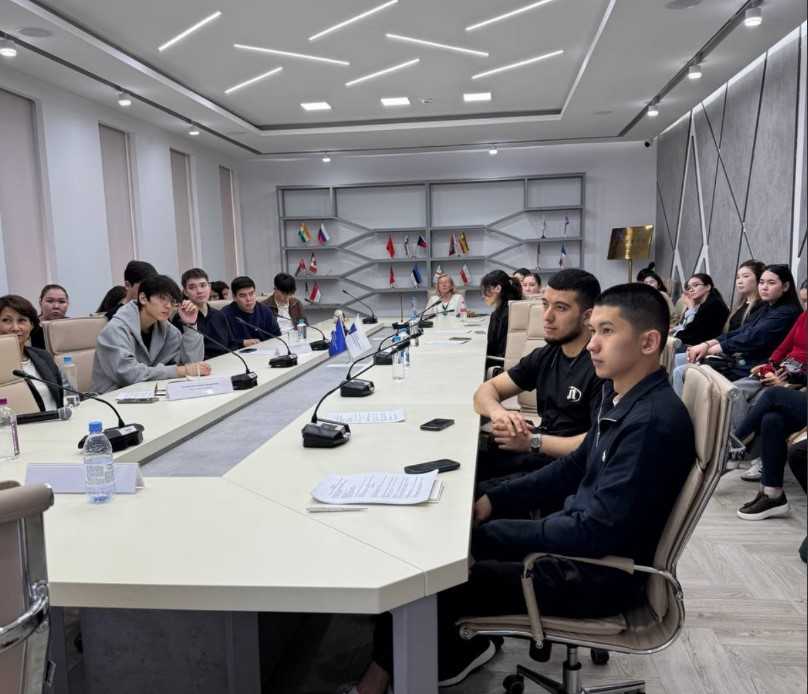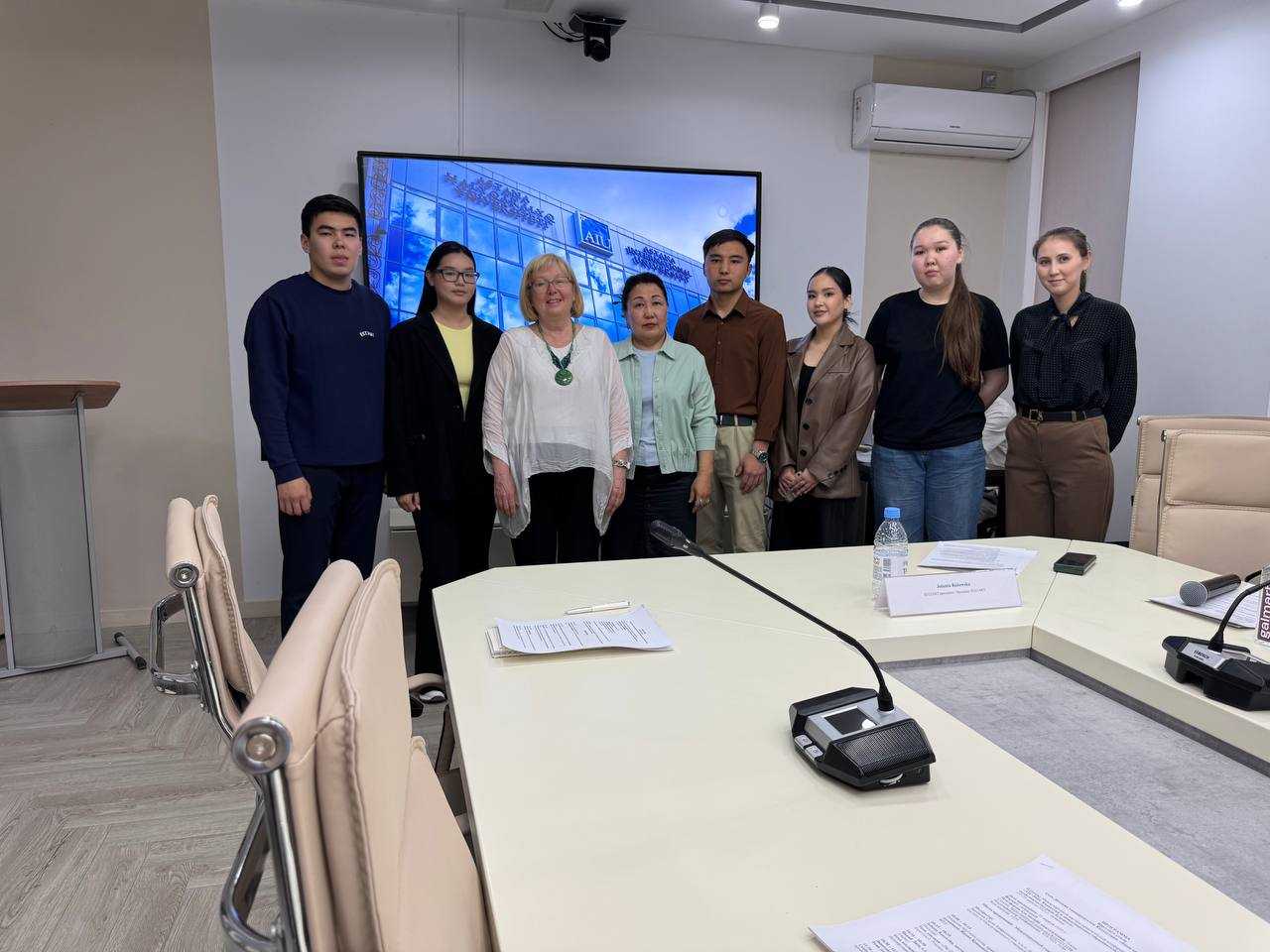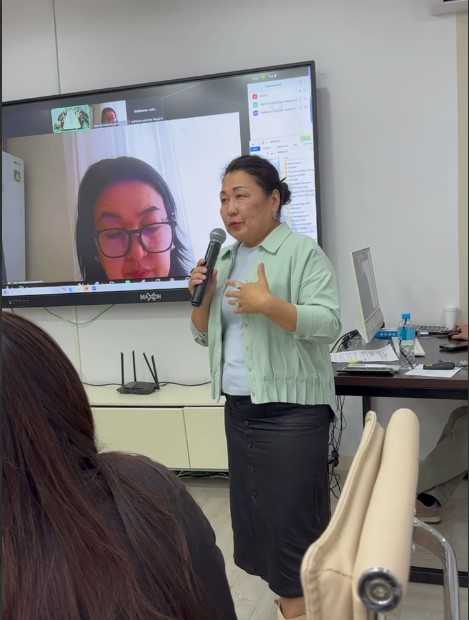On April 23, 2025, a roundtable on the development of the Children's University Network of Kazakhstan was held at Astana International University within the framework of the International Scientific and Practical Conference "AIU-2025: Kazakhstan and the International Educational Space: Cooperation for the Future."
The event took place in a hybrid format — in person (Astana, Building 1, Room 207) and online (via Zoom platform).
The moderator of the roundtable was Saule Kairollovna Damekova, Candidate of Pedagogical Sciences, Head of the "Informatics" Educational Program of the Pedagogical Institute at AIU.
Participants included Saltanat Manarbekovna Bolysbekova, Candidate of Chemical Sciences, Associate Professor, leaders of the Chemistry, Physics, Mathematics, Biology, and Geography departments of the Children's University of AIU, as well as Gulim Sailaubekovna Karimova, PhD, Deputy Director of the Pedagogical Institute, Head of the "English Language" Educational Program at AIU — Aliya Amangeldiyevna Akimkhanova.
The event opened with welcoming remarks by Zhanna Kuanyshevna Akhmadieva, Candidate of Pedagogical Sciences, Associate Professor, and Director of the Pedagogical Institute.
Presentations at the roundtable were delivered by:
• Jolanta Rozowska, President of the European Children's Universities Network (Poland), who spoke about the development of Children's Universities in Poland;
• Liza Naviy, Candidate of Pedagogical Sciences, Associate Professor at Sh. Ualikhanov Kokshetau University (online), who discussed the organization of a Children's University in the context of global competency formation;
• Saule Kairollovna Damekova, who presented the experience of AIU's Children's University in the format of open education for children.
During the open discussion, N.N. Nurmukhanbetova, Candidate of Chemical Sciences, Head of the Children's University at Sh. Ualikhanov Kokshetau University, emphasized the strategic shift from experimental initiatives to the systemic integration of Children's Universities into the university and regional development ecosystems.
Key areas for development were discussed: scientific elaboration of educational initiatives, project-based learning involving university students, transformation of developments into sustainable formats, and commercialization of educational products.
The participants prepared a joint statement proposing the inclusion of these areas into the strategic development plans of universities and ensuring financial support at the initial stages of project implementation.


